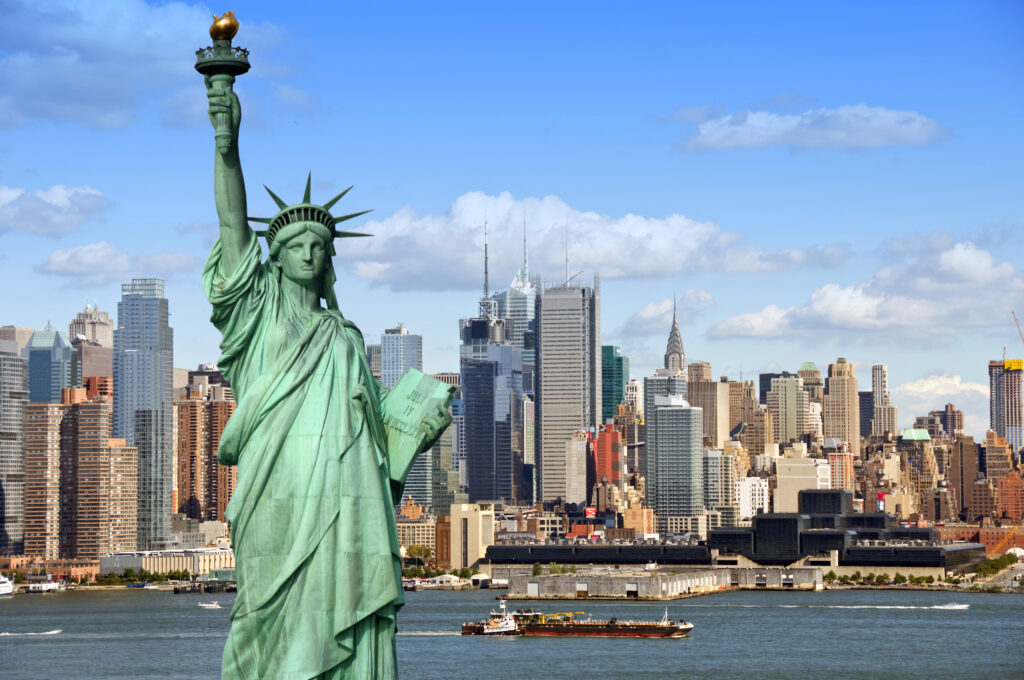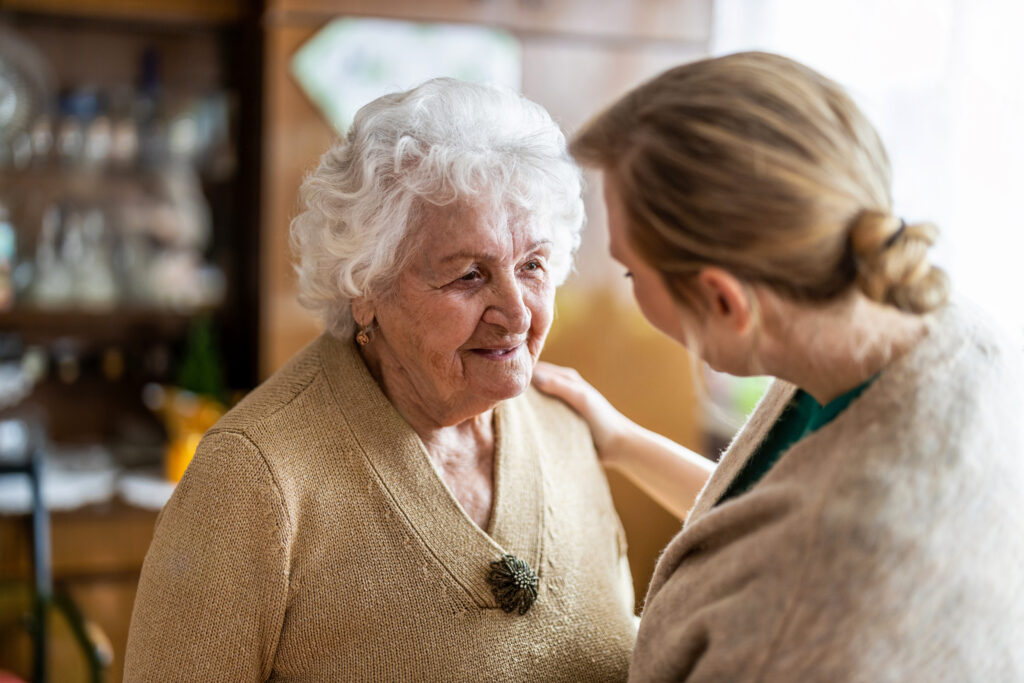Skilled Nursing in New York City, New York: Search Near You, How to Pay, Licensing, Local Resources, and Questions to Ask
As the center of world commerce and culture, New York City requires no introduction. One of the most famous and populous cities in the world, New York is a beautiful location for those looking at Skilled Nursing services. Skilled Nursing facilities in New York City could accept State Medicaid, private payers, and long-term care insurance which helps to relieve the financial burden of senior care, and could be more cost effective than home care.
Skilled Nursing Facility Communities near New York, New York
Lantern Hill
New Providence, New Jersey 07974
Cedar Crest
Pequannock Township, New Jersey 07444
Florham Park Rehabilitation And Healthcare Center
Florham Park, NJ 07932
Livia Health And Senior Living
East Hanover, NJ 07936
Winchester Gardens Health Care Center
Maplewood, NJ 07040
Harbour View Senior Living Corp
North Bergen, NJ 07047
Livingston Post Acute Care
Livingston, NJ 07039
Venetian Care & Rehabilitation Center, The
South Amboy, NJ 08879
Hoboken University Medical Center Tcu
Hoboken, NJ 07030
Careone At Hanover Township
Whippany, NJ 07981

About Skilled Nursing in New York City, NY
In New York, Social security, Medicare, Supplemental Security Income, and the Senior rent increase exemption are added benefits of being an aging adult in New York. New York’s population is over 8 million, about 15% of which are seniors and retirees, making it a good place to move into an assisted living community. For an individual who requires physical or cognitive care, providing home care can be difficult and costly. Assisted living communities do an incredible job filling that need. Levels of senior care range from minimal, such as providing meals and housing, to advanced care, such as mobility assistance and medication administration. Assisted living facilities provide individualized health management in a comfortable setting and focus on maintaining independence, privacy, and dignity. Adult care homes relieve the burden of home caregivers and offer seniors a more enriching quality of life.

Considerations when looking for Senior housing in New York City, NY
There are over 100 skilled nursing facilities within 10 miles of New York City proper. The estimated population of New York City is 8,258,035 with 15.5% of that number being those ages 65 and older. In New York City, the summers are warm, humid, and wet; the winters are very cold, snowy, and windy; and it is partly cloudy year round. Over the course of the year, the temperature typically varies from 28°F to 85°F and is rarely below 14°F or above 92°F.
Cities near New York City, NY
- Jersey City, NJ – 3 miles southwest
- Hoboken, NJ – 4 miles west
- Newark, NJ – 10 miles west
- Yonkers, NY – 16 miles north
- Stamford, CT – 35 miles northeast
Pricing and How to Pay for Skilled Nursing
On average, residents can expect to pay $12,400 per month for skilled nursing services. These fees encompass personalized care, engaging activities, and comfortable accommodations, ensuring a fulfilling retirement experience. Keep in mind these costs may fluctuate depending on factors such as location and facility amenities.

Paying for Senior Living and Care will vary depending on a few factors. For instance, the level of care needed; the income and savings of the resident; the state and location of the community; or if the resident is a veteran. In the United States there are over 400 programs that may offer some monetary relief for senior care, but often the majority of costs are covered by private funds and family assistance. These funds come from our Federal, State, and Local Governments.
It is important to take your time when exploring payment and coverage options.
Private pay – YES:
- Many families pay for assisted living with private funds.
- Private pay can be a combination of retirement funds, personal savings, and pension payments.
- Family members may contribute funds to pay for assisted living or other senior housing and care.
Medicare -MAYBE:
Medicare will TYPICALLY cover Skilled Nursing (SNF) care ONLY under these factors:
- People 65 years and older and individuals with end stage renal disease are eligible for Medicare benefits, no matter their income.
- Coverage is meant for people in need of short-term care.
- The person has Medicare Part A, and has available days left in their benefit period. The person has a qualified hospital stay. (3 consecutive midnights or more)
- The individual must enter SNF within 30 days of leaving the hospital.
- The person’s doctor has ordered inpatient services at a skilled nursing facility.
- The individual must need and receive the skilled care daily. The care provided must be care that the person can only receive in a SNF.
- The person needs skilled services because of an ongoing condition or a new condition that started while in a SNF for treatment of an ongoing condition.
- The skilled services must be reasonable and necessary for the treatment of the condition.
- You must receive the care in a Medicare certified SNF.
Medicaid – MAYBE:
Medicaid can be a payer source if the patient needs both care and has a financial hardship based on the individual state criteria. Eligible participants include: low-income adults, elderly adults and people with disabilities. The program is funded jointly by each state and the federal government; and national guidelines are in place do decipher how states must spend Medicaid money, but with allowances toward the guidelines. Every state has their own individual Medicaid assistance program. Each state determines what levels of care will be covered by Medicaid, who is eligible, and how much the state will reimburse the care community.
- Skilled nursing falls under Medicaid’s Nursing Facility Services.
- People who are eligible for Medicaid must meet the state criteria for skilled nursing care.
- The state of residency must abide by federal law and regulations when setting their skilled nursing care requirements.
- The patient meets the state guidelines for income and asset limits.
If you are unsure whether you qualify for Medicaid, you should apply. You may be eligible depending on your household income, family size, age, disability and other factors.For a clearer understanding on coverage contact your State Health Insurance Assistance Program.
Long-term Care Insurance – MAYBE:
Long term care insurance is a great way to pay for assisted living, and planning ahead is important when considering how to pay for senior housing and care. Nearly 75% of people over the age of 65 will require long-term care services at some point, so naturally, buying into long-term care insurance when a person is in their 50s and 60s is the most common time to do so.
- Long-term care insurance helps cover the costs of chronic medical conditions.
- Individuals and couples with the ability to pay into long-term care insurance have the advantage of a head start in allocating funds for senior care.
Veteran Aid and Assistance – MAYBE:
This benefit is available to some military veterans and surviving spouses who live in an assisted living community and those who have in-home care.
- There are specific guidelines, but a veteran may qualify for as much as $2,050 each month.
- A veteran with a sick spouse may be eligible for $1,600 per month.
- If a veteran has passed, their surviving spouse can qualify for $1,300 per month.

Questions to ask a skilled nursing facility
- Is the facility licensed?
- Has the facility’s license ever been revoked?
- Is the facility Medicare/Medicaid certified?
- What types of insurance is accepted?
- Are all specific medical needs able to be met?
- What services are offered?
- What is the rate for basic care?
- Are any reviews available to be seen by the public?
- Are protocols in place to ensure healthy, balanced meals?
- What if an individual has specific dietary restrictions, can they be met at the facility?
Additional questions and inquiries to ask skilled nursing facilities
- What should a new resident (patient) bring with them?
- What is the difference between skilled nursing and assisted living?
- What happens in case of an emergency?
- Can the family pet visit the resident?
- What is the level of privacy?
- What are the available social activities?
- What is the hours for family visits?
- Can patients request special meals for dietary needs?
- Are skilled nursing facilities connected to hospitals?
- How big are the rooms?
- What are the training requirements of skilled nurses?
Local Hospital and Healthcare Providers in New York City
NYU Langone Health
- Address: 550 1st Avenue, New York, NY 10016
- Phone: (212) 263-7300
Mount Sinai Hospital
- Address: 1468 Madison Avenue, New York, NY 10029
- Phone: (212) 241-6500
NewYork-Presbyterian/Weill Cornell Medical Center
- Address: 525 E 68th Street, New York, NY 10065
- Phone: (212) 746-5454
Lenox Hill Hospital
- Address: 100 E 77th Street, New York, NY 10075
- Phone: (212) 434-2000
NYC Health + Hospitals/Bellevue
- Address: 462 1st Avenue, New York, NY 10016
- Phone: (212) 562-4141
Local Resources and Links
Adult Protective Services The New York State Office for the Aging’s (NYSOFA’s) home and community-based programs provide older adults with access to a well-planned, coordinated package of in-home and other supportive services designed to support and supplement informal care. NYSOFA’s overall goal is to improve access to, and availability of, appropriate and cost-effective non-medical support services for older individuals to maximize their ability to age in their community and avoid higher levels of care and publicly financed care. NYSOFA achieves this through our network of 59 area agencies on aging. This network provides the following core services in coordination with local partners
New York State Office of Children and Family Services Bureau of Adult Services We accomplish these goals by partnering with hundreds of community-based organizations to provide services through older adult centers, naturally occurring retirement communities, case-management and home-care agencies, home-delivered meal programs, mental health and friendly visiting programs, and much more in each borough.
Legal Services NYC Legal Services NYC fights poverty and seeks racial, social, and economic justice for low-income New Yorkers.
Health Insurance Information Counseling and Assistance Program (HIICAP) HIICAP counselors help seniors and their caregivers to understand Medicare and other health insurance options and benefits.
Eldercare Locator This is a great resource to search for specific care in specific counties and cities. This database is a nationwide resource that connects older Americans and their caregivers with trustworthy local support resources. Connect with services such as meals, home care or transportation, or a caregiver education or respite from caregiving responsibilities. The Eldercare Locator is a public service of the Administration on Aging (AoA), an agency of the U.S. Administration for Community Living.
Medicare provides a search feature to find & compare providers near you, most senior housing and care providers are included on CareAvailability.com. Find & compare plans in your area. Determine if you qualify for premium savings
Medicaid offers information on how to apply for Medicaid, eligibility criteria, links to local state offices, and additional resources
The Alzheimer’s Association is the leading voluntary health organization in Alzheimer’s care, support, and research. Whether you are living with Alzheimer’s or caring for someone with the disease, information and resources are available.
Search other areas for skilled nursing
Not finding what you’re looking for? Take a look below.
